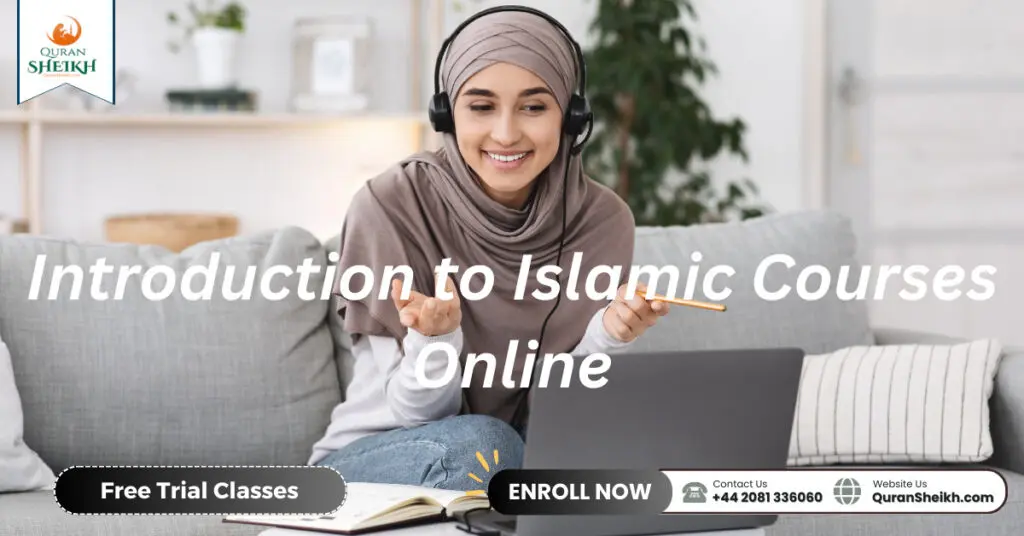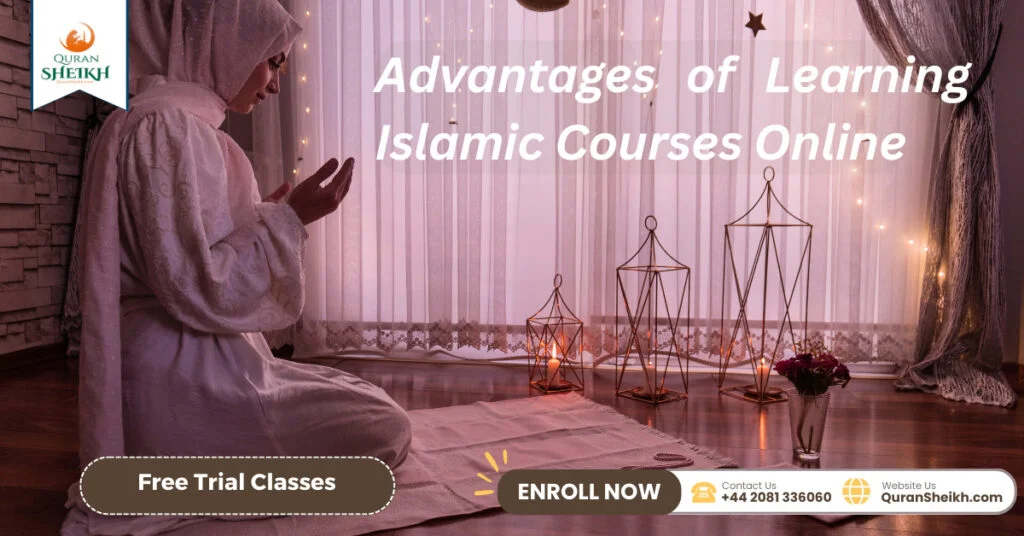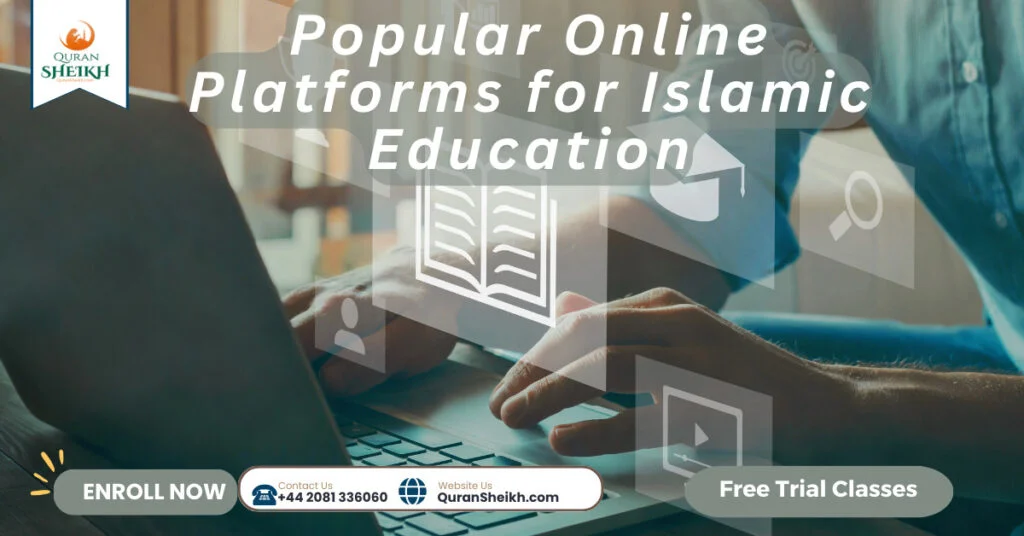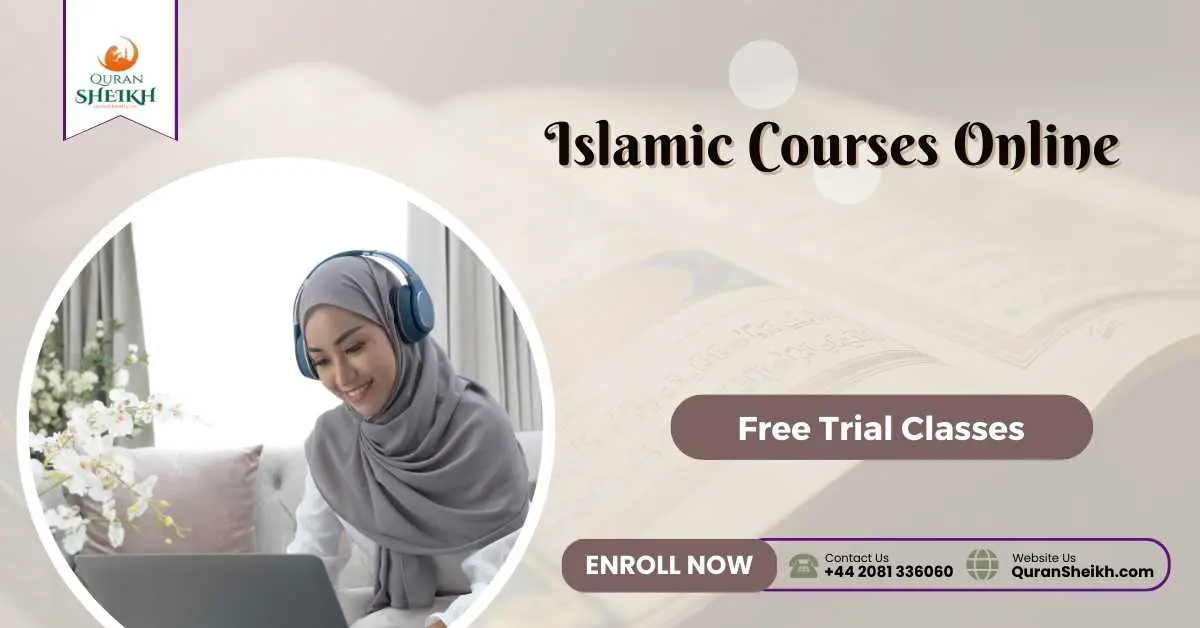1. Introduction to Islamic Courses Online
Online education has transformed the way individuals gain knowledge and skills due to the rapid progress of technology and growing need for flexible learning choices. Islamic education has also embraced online platforms, allowing individuals interested in expanding their knowledge of Islam to have access to a diverse array of courses.
Online Islamic courses provide a wide range of benefits, including flexibility, accessibility, and affordability. Delving into the realm of online Islamic education, this article examines the advantages it presents for Muslim communities, including the diverse range of courses accessible on popular platforms, tips for selecting the ideal course, and the ensuing impact on their development.
Additionally, we will delve into future trends in the field of Islamic courses online, as technology continues to reshape the way we learn and connect with knowledge.

Join thousands of Muslim Families who love learning Quran, Arabic and Islamic Studies from the comfort of their Homes.
1.1 The rise of online education
Online education has become increasingly popular and accessible in todays digital era. The convenience and flexibility it offers have revolutionized the way people learn. The growing trend of utilizing online portals for educational purposes extends to Islamic studies as well, with more people resorting to these platforms to gain a deeper understanding and broaden their knowledge about Islam.
1.2 Importance of Islamic education
Establishing a connection with their faith, enhancing spiritual wellness, and achieving a comprehensive understanding of Islamic teachings are all vital components of the role Islamic education plays for Muslims.
Regardless of where one is located or their personal circumstances, online Islamic courses offer a chance to obtain quality education for individuals from all walks of life.
2. Advantages of Learning Islamic Courses Online

2.1 Flexibility in scheduling
One of the greatest advantages of learning Islamic courses online is the flexibility it offers. Students have the freedom to design their own schedules and progress at their preferred speed through online platforms, distinguishing them from traditional brick-and-mortar institutions.
This flexibility is especially beneficial for busy individuals, working professionals, and students juggling multiple responsibilities.
2.2 Accessibility for learners worldwide
Online Islamic courses break down the barriers of distance and enable learners from all over the world to connect with reputable scholars and institutions. It matters not whether one dwells in a bustling cityscape or a distant countryside community; the crucial factor is being connected to the internet which grants one entry to boundless knowledge and opportunities for collaboration among like-minded learners from the coziness of their own living space.
2.3 Cost-effectiveness compared to traditional education
Attending traditional Islamic educational institutions often involves significant financial investments, including tuition fees, accommodation, and travel expenses. In contrast, online Islamic courses typically offer a higher cost-efficiency by solely mandating a dependable internet connection and a computer or smartphone.
The availability at an affordable price makes it attainable to a broader group of people, encompassing individuals with restricted financial means.
Quran Memorization Course Online with an Arab teacher with 30% Off
3. Popular Online Platforms for Islamic Education

3.1 Overview of leading online platforms
There are several reputable online platforms that offer a wide range of Islamic courses. These platforms bring together renowned scholars and educators who provide comprehensive and authentic Islamic teachings. Some popular platforms include XYZ Online Academy, ABC Islamic Education, and PQR Institute.
3.2 Features and offerings of each platform
Each online platform for Islamic education has its own unique features and course offerings. While XYZ Online Academy might specialize in Quranic studies and Arabic language courses, ABC Islamic Education might focus on hadith studies and Islamic spirituality.
Learners must ensure to explore such platforms and select the one that best aligns with their individual interests and educational objectives.
4. Diverse Range of Islamic Courses Available Online
4.1 Quranic studies and tafsir courses
Quranic studies and tafsir courses delve into the understanding and interpretation of the Quran, enabling learners to develop a deep appreciation for the message of the Holy Book.
These courses explore various aspects of the Quran, including its linguistic, historical, and spiritual dimensions.
4.2 Hadith studies and Prophetic traditions
The central point in Hadith studies revolves around exploring the customs and sayings of the highly respected Prophet Muhammad (peace be upon him).
By offering a comprehensive grasp on the gathering, verification, and analysis of hadith, these courses enable learners to delve into the Prophet’s existence and teachings.
4.3 Islamic jurisprudence and fiqh courses
Islamic jurisprudence and fiqh courses examine the principles and rules that govern Islamic law. These courses cover topics such as worship, transactions, family law, and ethical conduct. Learners acquire practical knowledge and understanding of fiqh, enabling them to navigate and apply Islamic teachings in their daily lives.
4.4 Islamic history and civilization courses
Islamic history and civilization courses explore the rich heritage and contributions of Muslims throughout history. These courses delve into various periods, empires, and intellectual movements, shedding light on the diverse accomplishments and cultural developments within the Islamic world.
By embracing the convenience and accessibility of online learning, individuals interested in Islamic education can embark on a transformative journey of knowledge and personal growth.
So why not explore the world of online Islamic courses and embark on a path towards a deeper understanding of Islam?
5. How to Choose the Right Online Islamic Course
5.1 Identifying personal learning goals
Finding the right online Islamic course begins with understanding your own learning goals. Do you desire to enhance your comprehension of the Quran? Or perhaps you want to explore the principles of Islamic finance? Finding clarity on your goals will assist you in refining your choices and discovering a suitable path that aligns with your passions.
5.2 Assessing course content and structure
When evaluating online Islamic courses, it’s important to assess the course content and structure. Look for courses that offer comprehensive and well-organized modules, covering the topics you are interested in. Consider whether the course offers interactive elements like quizzes, discussions, or practical exercises to enhance your learning experience.
5.3 Considering instructor qualifications and credentials
An instructor can make a significant impact on your learning journey, so it’s essential to consider their qualifications and credentials. Look for instructors with expertise in the specific area you want to study. Do they have a background in Islamic studies or relevant professional experience? Research their credentials and reviews to ensure they are credible and knowledgeable.
6. Tips for Success in Online Islamic Learning
6.1 Establishing a dedicated study routine
To excel in online Islamic learning, it’s crucial to establish a dedicated study routine. Set aside specific times each week to focus on your coursework. Treat it as you would a regular class, creating a peaceful and distraction-free study environment. Consistency and discipline will help you stay on track and absorb the material effectively.
6.2 Actively participating in online discussions
Participating in online conversations is a superb method to improve your learning journey. Take part actively in discussion boards, solicit inquiries, and exchange ideas with fellow students.
Alongside deepening your comprehension of the subject matter, it furthermore enables you to engage with a community of individuals who share similar interests.
6.3 Seeking additional resources and study aids
While online courses provide valuable content, don’t limit yourself to just the course materials. Consider delving into supplementary materials like textbooks, audio recordings, and scholarly pieces to enhance your understanding. Seek out study aids like flashcards or educational apps that can supplement your learning and help you reinforce key concepts.
7. Impact of Online Islamic Education on Muslim Communities
7.1 Empowering learners to become knowledgeable individuals
Online Islamic education has the power to empower learners, equipping them with a deep understanding of their faith. By offering easily attainable education of great quality, individuals will be able to expand their understanding of the principles, teachings, and history of Islam, thereby improving their personal development and strengthening their bond with the faith.
7.2 Fostering a stronger sense of community
Online Islamic courses also contribute to fostering a stronger sense of community among Muslim learners. Through virtual discussions, forums, and social platforms, individuals from diverse backgrounds can come together to engage in meaningful dialogue and foster connections.
Different perspectives can be learned from, while receiving support and encouragement in this sense of community.
7.3 Promoting religious literacy and understanding
One of the significant impacts of online Islamic education is the promotion of religious literacy and understanding. Accessible and well-structured courses enable individuals to delve deeper into their knowledge of Islam, fostering a more comprehensive understanding of the faith while dispelling misconceptions. This increased religious literacy can lead to greater interfaith dialogue and appreciation for diversity.
8. Future Trends in Islamic Courses Online
8.1 Integration of advanced technology in online education
As technology continues to advance, the integration of advanced tools and platforms in online Islamic education is expected to grow. By embracing virtual reality, interactive simulations, and augmented reality, students can delve into historical contexts or partake in interactive exercises, thus enhancing their learning experience.
8.2 Personalized learning experiences through AI and analytics
Artificial intelligence and analytics have the potential to revolutionize online Islamic education by providing personalized learning experiences. Adaptive learning platforms can analyze students’ strengths and weaknesses and tailor the coursework accordingly, optimizing the learning process and ensuring individualized support.
8.3 Collaborative online learning communities
Collaborative online learning communities are likely to become more prevalent in the future of online Islamic courses. The collaboration, discussion, and mutual learning opportunities offered by these communities foster a vibrant and captivating educational atmosphere.
A sense of belonging and continuous growth and exploration of Islamic knowledge are fostered through peer-to-peer interaction. With the flexibility, accessibility, and diverse range of courses available, online learning is transforming the way we approach Islamic studies.
With our eyes focused on the future, we can expect more technological breakthroughs and unconventional methods in online education that will further enrich the learning journey for students from diverse backgrounds.
The journey of exploring Islamic knowledge online is an enriching one, empowering individuals to deepen their understanding of Islam and contribute to their communities with a strong foundation of faith.
Online Quran classes for sisters
Online Quran classes for sisters offer a convenient and flexible way to learn the Quran. With these classes, you can study at your own pace and from the comfort of your own home. You can also choose from a variety of classes, including Quran memorization, tajweed, and tafsir. Many online Quran classes also offer female tutors, which can be a great option for sisters who prefer to learn from other women.
Here are some of the benefits of online Quran classes for sisters:
- Convenience: You can study at your own pace and from anywhere in the world.
- Flexibility: You can choose the classes that fit your schedule and learning style.
- Affordable: Online Quran classes are often more affordable than traditional in-person classes.
- Female tutors: Many online Quran classes offer female tutors, which can be a great option for sisters who prefer to learn from other women.
Islamic english courses
Islamic English courses are designed to help learners improve their English language skills while also learning about Islamic culture and values. These courses can be a valuable resource for anyone who wants to learn English and better understand the Islamic faith.
Here are some of the benefits of taking an Islamic English course:
- You will learn English in a way that is sensitive to Islamic culture and values.
- You will gain a deeper understanding of the Islamic faith.
- You will meet other people who are interested in Islam and English.
- You will have the opportunity to practice your English in a supportive environment.
Learn islam for beginners
Learning Islam for beginners can be a daunting task, but it doesn’t have to be. There are many resources available to help you get started, including books, websites, and even online courses. The most important thing is to find a resource that is right for you and to be patient as you learn.
Here are a few tips for learning Islam for beginners:
- Start with the basics. Learn about the pillars of Islam, the five daily prayers, and the basic beliefs of Islam.
- Find a mentor or teacher who can help you learn. This could be a friend, family member, or even an imam at a local mosque.
- Be patient. It takes time to learn a new religion. Don’t get discouraged if you don’t understand everything right away.
With a little effort, you can learn Islam and become a more knowledgeable and practicing Muslim.
Best Quran memorization program with qualified Arab tutors and get 30% OFF, Quran classes for Kids
FAQ
1. Can I earn a recognized certification or degree through online Islamic courses?
Yes, many online platforms offer certified courses and even degree programs in Islamic studies. These certifications and degrees are often recognized within the Islamic academic community and can enhance your credentials and knowledge in the field.
2. Are online Islamic courses suitable for beginners with limited knowledge of Islam?
Absolutely! Online Islamic courses cater to learners of all levels, including beginners with little to no prior knowledge of Islam. Anyone who wants to learn about Islam can access introductory courses that lay a strong groundwork in Islamic principles.
3. How do I interact with instructors and fellow students in online Islamic courses?
Online Islamic courses often provide discussion forums, chatrooms, and virtual classrooms where you can interact with instructors and fellow students. These platforms offer opportunities for asking questions, participating in discussions, and engaging in collaborative learning experiences.
4. Can I access online Islamic courses from anywhere in the world?
Yes, one of the major advantages of online Islamic courses is their global accessibility. As long as you are connected to the internet, you can access these courses from any part of the world, enabling you to learn at your own convenience and speed.


